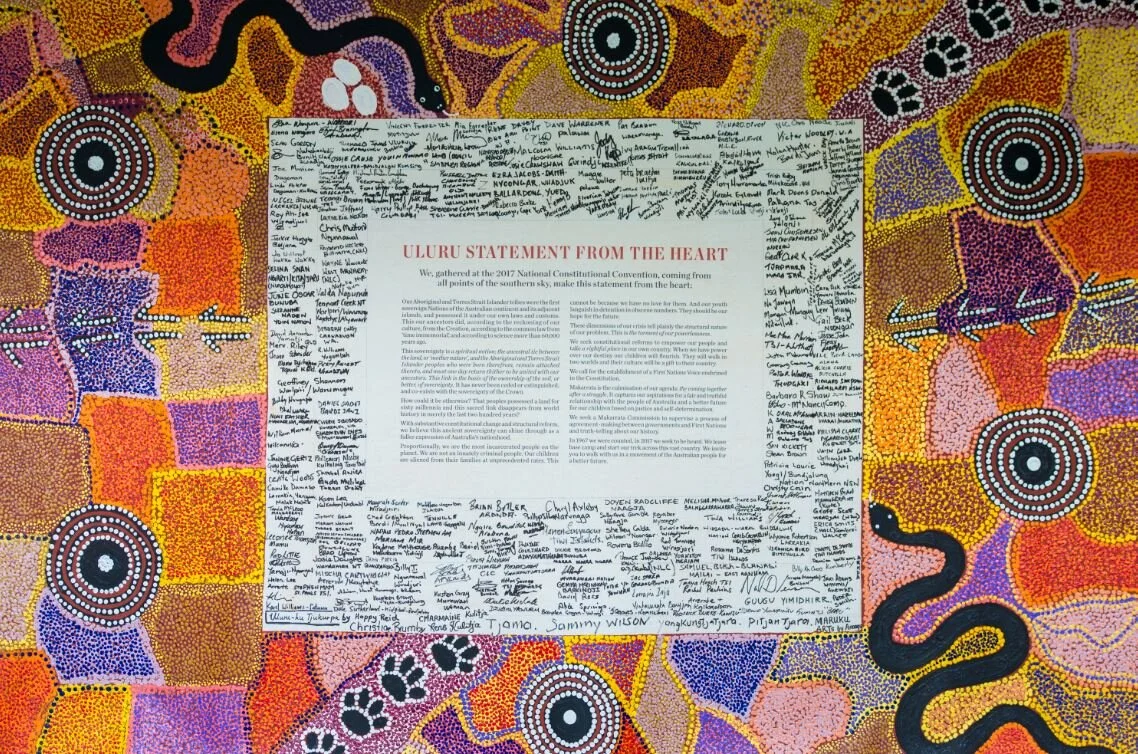Much of the gender pay gap can be explained by different pay scales in male- and female-dominated industries, which raises questions of how society values health, education and social services. In a landmark ruling, an Equal Remuneration Order (ERO) was granted to social and community service workers to legislate a much-needed pay rise across the sector. In today’s piece, Natasha Cortis of UNSW shares insight from research she conducted with Megan Blaxland on the role that government supplementation has played in ensuring the sector could maintain quality service while also implementing the award. More information can be found in their report: Challenges for Australia’s Community Sector: ERO Supplementation.
Read MoreIn order to truly represent Australia in all its diversity, we also need greater diversity in our politics. Evidence shows that increasing female representation has a very real impact on the legislation that is raised. In Australia, however, while the numbers of women in politics is slowly inching upward, many women have said that engaging in politics come at a cost seldom borne by their male counterparts: Consider, for example, Nova Peris’ recent comments on the racial abuse she endured, or the slander endured by Senator Sarah Hanson-Young.
For International Women’s Day, in today’s post Blair Williams (@BlairWilliams26) of Australian National University provides an overview of her research into the way women Prime Ministers are portrayed in the media, how that denigrates their authority and capability, and the negative impact it is having on increasing female political representation.
Read MoreFew people are aware of co-design’s political roots. The concept first emerged in Scandinavia in the 1970’s through union insistence that workers be included in the major restructuring of their industries as a way of “emancipating workers at the workplace” (p. 145). Central in its philosophy is the tenet to equalise power as a prerequisite for true collaboration. For International Women’s Day, Summer May Finlay (@SummerMayFinlay) of University of South Australia explains why the government has shown bad faith in failing to adopt the full recommendations from the Uluru Statement from the Heart. As long as full citizen rights are withheld from Aboriginal and Torres Strait Islanders, women’s rights will also fail to be achieved.
Read MoreWith the recent announcement by the Coalition Government to expand the use of the Cashless Debit Card (CDC) to more people on income support, it is continuing to be positioned as a positive intervention, providing people who need it most with a ‘financial literacy tool.’ With approximately 2.3 million people receiving some form of income support, there is currently great interest in how the Card, as well as other forms of cashless welfare, are experienced by those who have been subjected to these policies. Today’s important piece by researchers Zoe Staines (@Zoettes), Greg Marston, Philip Mendes, Shelley Bielefeld and Michelle Peterie (@MichPeterie) draw on their ground-breaking independent report into experiences and impacts of cashless welfare to explain how women and children are adversely affected.
Read MoreLast month, Labor announced a proposal to create a ‘wellbeing budget,’ similar to that introduced in New Zealand. While Josh Frydenberg found this a ‘laughable’ idea, there is nevertheless a logic that one of the wealthiest countries on Earth could do more to focus on those struggling at the margins. In today’s post, Dr Megan Weier (@MeganWeier) and Isabella Saunders (@Isabellasaund) share the logic for the newly-introduced Social Progress Index, which identifies and tests indicators that could be measured alongside GDP. You can explore more on the Social Progress Index, including accessing the full report.
Read MoreMy experiences as a ‘job seeker’ reinforce the view that jobactive should be shut down. I chose the jobactive provider because I had heard its senior managers boasting about the skills of their staff. To keep things fair, I told the workers I met about my knowledge of employment services and that I was taking notes of every appointment. These notes were so I could check what they told me to do was technically correct in relation to the guidelines and Social Security Act. Here’s a short account of what happened in the 4 months I was job seeker.
Read MoreThe accelerating pace of urbanisation globally has generated new anxieties about our relationship with and experience of cities. In this piece Jessica Pykett discusses how to start designing policy strategies for urban wellbeing.
Urban challenges such as traffic, air pollution, noise, stress, overcrowding, socio-economic inequalities, food insecurity, excessive waste, ill-health, exclusion, conflict, privatisation of space and impacts of extreme weather, biodiversity loss and the climate crisis are some of the many concerns which urban policy makers are asked to address. In 2018 at a summit of the World Health Organization’s European Healthy Cities Network in Copenhagen, Denmark, hundreds of Mayors committed to taking action on health, wellbeing and happiness in cities.
Read MoreThe Closing the Gap Report 2020 was released the week before last by the Prime Minister. He frankly admitted ‘The final target — closing the gap in life expectancy within a generation — is not on track to be met by 2031’. Then he went on ‘We may not be on track to fully close the life expectancy gap in a generation – always an ambitious target – but mortality rates have improved by almost 10 per cent. This is mostly because we’ve made progress in tackling the leading cause of death: the big circulatory diseases like heart disease and stroke. This is progress.’ In this piece, Richard Madden and John Gilroy of the University of Sydney analyse the implications of this report and the statements made.
Read MoreSuicide is a major challenge for public health. Approximately 800,000 people die by suicide every year worldwide; that is one every 40 seconds. The impact on those left behind is profound and long-lasting. It is estimated that for every death by suicide approximately 135 people are affected. In this post, Dr Maria Michail reflects on the importance of understanding the complexity of suicide and suicidal behaviour.
Read MoreToday marks the release of the second ACOSS and UNSW Poverty in Australia report, an important document to keep civil society and government accountable to those who are being left behind in one of the most prosperous countries on Earth. In today’s analysis, Policy Whisperer Susan Maury (@SusanMaury) of Good Shepherd Australia New Zealand (@GoodAdvocacy) provides a gendered analysis of the Poverty in Australia report.
Read MoreGerry Hamill from UK NGO First Time Inside helps new prisoners prepare for incarceration through ‘rehabilitation’. In this blog, Gerry reflects on the uses and abuses of people with ‘lived experience’ in the social service sector.
Read MoreWhile women are slowly making headway in achieving senior ranks in the workplace, does title override gendered unconscious bias? Today’s insightful analysis from Amelia Loughland (@AmeliaLoughland) reports on her empirical research which finds that female judges on the high court are more likely to be interrupted by male counsel than their male counterparts. This analysis draws from an article soon to be published in the Melbourne University Law Review; an advance copy is available here.
Read MoreWhile managing the archives for Good Shepherd Australia New Zealand (@GoodShepANZ), Fraser Faithfull keeps a close eye on the impact of government policies for disadvantaged women, children and families. Today he shares a review of the Victorian Parliamentary Inquiry into Homelessness, the challenges for the sector in Gippsland, and innovative responses that could support larger policy reforms.
Read MorePeople over the age of 65 who develop a motor neurone disease (MND) can have difficulty accessing technology that can provide them with greater quality of life and independence, because they are not eligible for the NDIS. In today’s piece, Carol Birks (@CEBirks), Ben O’Mara (@BenOMara), and Morag Millington, all of MND Australia (@MNDAustralia) outline the need and propose cost-effective solutions for providing assistive technology to older Australians in need. This piece originally ran in The Mandarin.
Read MoreIn what is fast becoming a global trend, the conservative Coalition was not expected to win the election held in 2019. Understanding how they did is critical to ensuring robust democratic systems in Australia. In today’s blog, Kate Griffiths (@_KGriffiths), Tony Chen and Danielle Wood (@DanielleIWood), all of The Grattan Institute (@GrattanInst), provide an analysis of how the record $90 million spent by Clive Palmer’s United Australia Party swayed the outcome of the election and provide insight into much-needed donation reforms. This post first appeared on The Grattan Institute web site; you can read it in its original format here, or read more about the author’s analysis in their related piece in The Conversation.
Read MoreWith the government’s recent announcement that they plan to start rolling out the Cashless Debit Card beyond its trial phase, thousands of people currently struggling to get by on low rates of the Newstart Allowance are poised to have their lives made even harder. The Accountable Income Management Network (@AIMNau) today outlines some of the key concerns why expanded the CDC is a bad idea - for low-income Australians and for the Big 4 banks, Coles and Woolworths.
Read MoreDr Adam Hannah (@adamjhannah; University of Western Australia) draws on his recent article in Policy & Politics to consider the growing prominence of Medicare for All in US politics and what lessons can be drawn for those advocating for systemic change.
Read MoreHere Professor Jenny Lewis (@JennyMLewis1; University of Melbourne) reports on her study of public sector innovation laboratories in two nations, outlining the challenges and opportunities for design thinking in policymaking. Jenny’s article with Dr Michael McGann and Dr Emma Blomkamp is free to read in Policy & Politics until 29 February 2020.
Read More




















